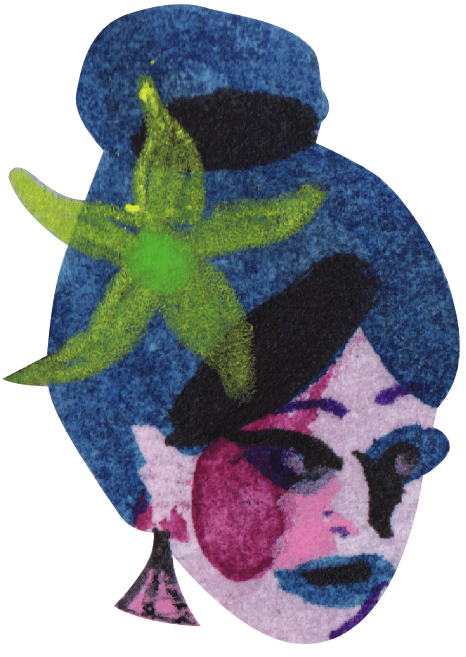Nightcap with Ir y Volver [To Go Away and Come Back]
Interview with José Permar, director of Ir y Volver

It was mostly the only thing I was able to do. I was facing a deep longing feeling from my family and hometown, I was feeling very distanced, and the lockdown made it stronger. When my mother got sick, things went very fast for me to realize, then the doctors told us that her expectations to survive were very little. For a couple of weeks, she was in an induced coma, and every communication I had with my family or with the doctors ended up trying to assimilate her possible death. Every communication was just digital even before it happened, and now she wasn’t even there to answer the phone. Her past voice memos, calls with my sister; I even asked her to record her calls with the doctors trying to better understand what was happening. All I had was digital material that seemed very distant. Being in a different continent and without the chance to travel back, everything felt kind of intangible and unreal, like some bad dream. I was doing a masters in documentary and I was supposed to make a short film during that month. I couldn’t concentrate on anything else, and then the feeling that even if I went back there was nothing I could do to help, made me feel helpless and kind of blocked. When my mother woke up and I could start talking to her again, we decided to record some calls where she told me about her experiences during the coma, and both our worries for each other and the family. I realized I also had all the voice materials stored on my phone and putting it all together into a film helped me to fill this need of doing something towards the experience. It gave me some closure and gave our family some way to verbalize these feelings.

To find their own way too. I think every story or idea has its own way to be put into a film, and when it makes sense to each other everything starts to flow. The way a film can be told or shown can make sense with your personality, your ability to talk or not talk about certain stuff; or also can be exactly the opposite, because the film is not entirely you. Each film can be a chance to play a role, or to give yourself a chance to express something that in other media you’ll do differently.

I realized I had stored in my phone all the calls with my sister, recorded calls with doctors, and versions of a voice note the nurses asked me to send to my mom, that they would put to her to listen while she was unconscious. I didn’t know what to put on these voice notes, which had the potential to be a goodbye message, or to be just ignored, since there wasn’t any evidence she could actually listen to it. I just knew I wanted to abstractly recreate the move and travel I was doing while this was happening to my mom, and that we wanted to record another of our calls, when she explained her dreams and mostly answered my question: Mom, did you think you were dead? How does it feel? I couldn’t make a proper written script or discuss the structure of the film, because as soon as I started to listen to the doctor’s call or the messages with my sister, it made me so sensitive that I’d close myself to the point of not being able to talk in film terms with any other partners or on paper. All I could do was spend some days gathering all the materials for myself, cleaning them, organizing, and setting up a comfy space to start editing the film straight away. When I had everything ready, I just started to play with the materials alone for some days until the film was ready.


I don’t have any expectations. I find it to be a very humble film. Usually, I believe that making films uses such a big amount of resources that as a filmmaker one has to be very responsible, concise, and conscious of the audience. But at least for this film, I saw it as an experiment and a chance for myself to explore other ways to relate to making movies.

I can’t remember one right now. But lately I’ve seen a lot of “covid films” being made, or many essays, monologue, or introspective documentaries as a result of the inability to go out and connect with people because of the lockdowns. When they are about the generalities of the pandemic it can be a bit too informative for me, but when they share something truly personal, they all have very intimate reflections on loneliness, isolation, alienation… Feelings that are similar but a bit different from one person to another. I find that very beautiful because it is a very true reflection of our times that goes beyond the sanitary emergency. It feels like a bunch of lonely people all longing for a connection each from their own little islands.

I really don’t know. When I ask myself, the answer changes depending on the day. The only definition that kind of stays is when a film provokes a mood that can only be achieved by film. They are like collages made with images, sounds, music, phrases, narration… and you can provoke something strong with only one of these elements. But there are some brief moments when a film provokes a very abstract emotion that you can’t explain just by words, images or sounds but the combination of them all.








